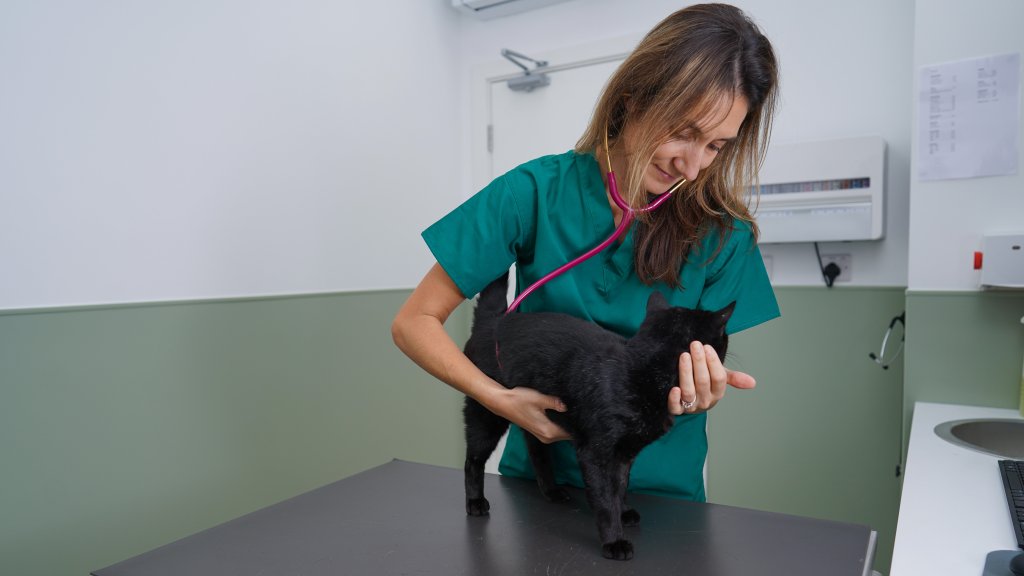Veterinary Shortage in the UK: Brexit and Rising Pet Ownership to Blame
Despite being one of the most sought-after careers among children, the UK is currently experiencing a significant shortage of veterinary professionals.
With around 60 percent of households owning pets and 3.2 million animals acquired during the lockdown period, the current workforce of veterinarians falls short by 10 percent of the national requirement.
The reduction in European veterinarians entering the UK, which dropped by 68 percent due to Brexit-related policy changes, has exacerbated the issue, prompting veterinary organizations to encourage more young individuals to consider careers in animal care.
Elizabeth Mullineaux, the president of the British Veterinary Association, stated, “The veterinary field is diverse. Vets not only care for pets but also support farmers, work in government roles focusing on public health, and contribute to ensuring food safety at our borders. Opportunities are present in pharmaceuticals, charities, and zoos as well.”
Typically, becoming a veterinarian requires five to six years of rigorous academic training. Even with a rise in applicants, it is expected that the current shortages will continue for another decade. The profession offers a rewarding career path, especially in underfunded areas such as government service and public health, where vets play critical roles, including monitoring zoonotic diseases that can spread from animals to humans.
In the UK, there are approximately 5,000 veterinary practices, which include independent, group, and corporate practices, employing more than 30,000 vets and contributing around £5 billion annually to the economy.
The Competition and Markets Authority is currently investigating the sector due to rising costs, while senior veterinarians attribute these increases to advancements in treatment options and the growing costs of hiring qualified staff.
Mullineaux emphasizes, “It’s crucial to recognize that there is no equivalent of the NHS for pets. Veterinary care is priced fairly, reflecting the investment in staff and medical technology.”
Success in veterinary practice requires more than just medical knowledge. Samantha Butler-Davies, director of veterinary services at Vets for Pets, notes the importance of strong interpersonal skills. She remarks, “Being a vet isn’t purely about caring for animals; it involves emotionally charged moments, supporting pet owners through tough decisions, and exhibiting empathy and resilience.”
To encourage a diverse talent pool, certain universities offer “contextual offers,” allowing students from disadvantaged backgrounds to gain admission with lower grades. Sue Paterson, who oversees career development at the Royal College of Veterinary Surgeons, advocates for this initiative. “No matter the specific field, veterinary work enhances both animal and public health,” she asserts.
The financial rewards for veterinarians can be significant, with average salaries exceeding £60,000, and senior positions potentially earning over £100,000. For many, the journey to becoming a vet is about fulfilling a lifelong dream, not just securing a job.
Mullineaux concludes, “For countless individuals, qualifying as a vet has been a childhood aspiration that transcends merely working with animals; it involves collaborating with people and provides a deeply fulfilling career.”
Pathways to Becoming a Vet
Prospective veterinarians should consider several routes into the profession. Recommendations from the British Veterinary Association and Royal College of Veterinary Surgeons include:
• Lower academic performance shouldn’t deter aspiring vets; options like foundation courses and postgraduate entry exist, along with related careers in veterinary nursing and care assisting. Research suitable pathways.
• Gain experience across various animal settings, including farms, catteries, kennels, and stables, while observing different veterinary practices.
• Do not overlook opportunities in government roles, disease control, or public health—these positions can be exciting and impactful.
• Continuous professional development is essential. Both clinical expertise and soft skills like communication and teamwork are vital.
• Prioritize personal wellbeing and mental health, as building resilience is key in this challenging profession.
• Be open to exploring a range of roles, from clinical tasks to management and ownership of veterinary practices.
• Acknowledge the significant role vets play in wildlife and environmental protection—sustainability is a crucial consideration for the profession.
• Always remember your initial motivation: a passion for animals and a desire to make a positive impact.
The Importance of Effective Communication in Veterinary Care

Hayley Baker, MRCVS, owner of Cambridge Beehive and Bar Hill Vets for Pets, shared her experience: “Growing up, I learned the ropes of animal care from my veterinary nurse aunt. I realized that veterinary medicine is fundamentally about problem-solving.
“If you’re seeking a fulfilling career in this field, brace yourself for the unexpected. We treat a wide range of animals, from common pets like dogs and cats to exotic species such as bearded dragons and tortoises.
“There are countless career focus areas—from equine to exotic animal care, general practice to research in medical development.
“Contrary to common belief, I entered this profession because I value communication. A successful vet must be adept at interacting with clients.”
Current Employment Trends
Declining Salaries Amid Economic Challenges
Average full-time salaries have fallen below £40,000, coinciding with the government’s national insurance increase and ongoing international trade tensions. Recent data from Employment Hero indicates that median full-time earnings have decreased to £39,946, down from £40,197 recorded in December, as new employees are offered lower wages and current staff face pay freezes. Kevin Fitzgerald, managing director of Employment Hero, expressed concern, stating, “This marks the first consistent decline in median full-time earnings since we began monitoring this data, which is alarming for employees in the UK.”
Top Companies for Paternity Leave
Organizations like BBC, Aviva, and Diageo have emerged as leaders in offering generous paternity leave, with up to 52 weeks of paid time off. Meanwhile, many UK companies offer only the statutory two weeks. Childcare agency Koru Kids has introduced a tool to help fathers compare paternity leave policies across workplaces. Koru’s CEO, Rachel Carrell, notes, “Companies that recognize the importance of supporting fathers in those critical early phases gain significant returns in employee retention and productivity.”
Advancing Diversity in Architecture
Clarion Housing Group has initiated a new scholarship program aimed at promoting diversity in the architecture sector. Collaborating with the London Neighbourhood Scholarship Trust, Clarion will grant three William Sutton Prize scholarships, valued at £15,000, distributed over three years to architecture students from underrepresented backgrounds in London. Clarion’s chief executive, Clare Miller, emphasized the value of diverse voices in shaping a more inclusive future for the field.
AI Training Crucial for UK Workers
Skills in artificial intelligence within the UK workforce have more than doubled since 2016. However, a recent LinkedIn global AI report reveals that only 1 percent of UK workers are considered adequately trained in this critical technology. Properly upskilling and integrating generative AI could potentially contribute £400 billion to the UK economy. Sue Duke, LinkedIn’s vice-president, asserted that “Policymakers and business leaders need to prioritize AI training programs and hire based on skills rather than conventional qualifications.”
Job Opening of the Week
The economic regulator for Scottish Water, WICS, is seeking a director of markets. As a non-departmental public body, WICS is responsible for overseeing the utility to ensure long-term value for customers and communities.
The director of markets will play a vital role in regulating competitive markets and maintaining fairness and transparency. While the focus will mainly be on the retail non-household market, the role also seeks to adopt successful practices from other areas to enhance efficiency and sustainability.
Ideal candidates will be leaders driven by values, possessing a strong background in market regulation or economic policy, with demonstrated experience in competitive market development or consumer protection. Exceptional skills in stakeholder engagement and a comprehensive understanding of economic regulation and customer-focused practices are crucial.
Applications are open until May 2.




Post Comment